Map
The following is a list of assignments performed by the team. They are listed by type of clients or types of organisations studied. The numbers are those in the Table in the ‘Presentation’ page.
Click the list below the map to see the assignments we have conducted in the regions or countries for which you have a special interest.

Development Finance Institutions (DFIs)
1- Agence française de développement (AFD)
 We advised on the structuring of AFD energy efficiency and renewable energy credit lines to local banks in South Africa, Turkey, and China (€320mln in total) (2009). Loans were signed with Hua Xia, Chinese Merchants' Bank, and Shangai Pudong Development Bank (China), TSKB and TEB (Turkey), and ABSA (South Africa).
We advised on the structuring of AFD energy efficiency and renewable energy credit lines to local banks in South Africa, Turkey, and China (€320mln in total) (2009). Loans were signed with Hua Xia, Chinese Merchants' Bank, and Shangai Pudong Development Bank (China), TSKB and TEB (Turkey), and ABSA (South Africa).
2- Agence française de développement (AFD)
 We advised on the design of a capacity building programme for Bank Mandiri, Indonesia’s largest bank, as part of the ongoing support provided by AFD to Bank Mandiri to develop its low-carbon expertise and financing and its social and environmental appraisal procedures (which included a €100mln credit line in 2010) (2011.)
We advised on the design of a capacity building programme for Bank Mandiri, Indonesia’s largest bank, as part of the ongoing support provided by AFD to Bank Mandiri to develop its low-carbon expertise and financing and its social and environmental appraisal procedures (which included a €100mln credit line in 2010) (2011.)
3- Agence française de développement (AFD)
 We developed a MS Excel-based tool to calculate the financial viability of, and select the optimal financing plan for, energy efficiency projects (IRR, WACC, NPV, etc.) based on potential energy savings arising from a given set of investments. This tool can be used by local banks as well as projects proponents (2011.)
We developed a MS Excel-based tool to calculate the financial viability of, and select the optimal financing plan for, energy efficiency projects (IRR, WACC, NPV, etc.) based on potential energy savings arising from a given set of investments. This tool can be used by local banks as well as projects proponents (2011.)
4- Agence française de développement (AFD)

We conducted as part of a team led by Frankfurt School of Finance and Management an ex-post evaluation of the first AFD energy efficiency and renewable energy credit line in China (2007-2009).
This was a sovereign operation whereby AFD provided a 60M€ concessional loan via the Ministry of Finance of China to three Chinese commercial banks: Shanghai-Pudong Development Bank (SPDB), China Merchants Bank (CMB), and HuaXia Bank. The evaluation also encompassed the associated technical assistance programme funded by the French Global Environment Facility (FFEM) with a €600,000 grant (2012-2013).
5- World Bank Group (Independent Evaluation Group)
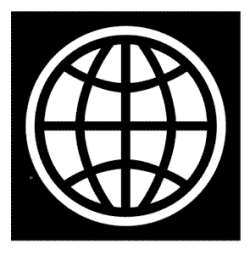 We evaluated for the Independent Evaluation Group of the World Bank a portfolio of 9 energy efficiency projects in Eastern Europe and Russia where the funding and loan guarantees (partial credit guarantees) from the IBRD and IFC (most having received GEF funding) were channelled to financial intermediaries or energy service companies (ESCOs).
We evaluated for the Independent Evaluation Group of the World Bank a portfolio of 9 energy efficiency projects in Eastern Europe and Russia where the funding and loan guarantees (partial credit guarantees) from the IBRD and IFC (most having received GEF funding) were channelled to financial intermediaries or energy service companies (ESCOs).
This was an input to the report: “The challenge of low carbon development” (2010). This report constitutes Phase II of an evaluation series on “Climate Change and the World Bank Group” (2010).
We wrote for the World Bank a review of Germany’s energy efficiency policies between 1990 and 2007, as part of a Bank initiative to benchmark countries and distillate lessons for policy-makers in countries at a less advanced stage of economic or relevant policy development.
This culminated in the book “Energy Efficiency: Lessons Learned from Success Stories” published in early 2013. This study analyzes the energy efficiency policies in seven countries that were successful in achieving low energy intensities or in considerably reducing their energy intensity. Charting the evolution of the energy intensity of these countries from 1990 to 2007, and identifying points of inflection in the progress towards improvements, its purpose is to determine what policy changes make a difference in countries' energy intensity (2010).
We wrote a case study on the use of results-based financing (RBF) instruments to induce home-owner associations in transition and development countries to implement EE investments in multi-family buildings and contract energy service companies (ESCOs) for the implementation of these investments.
This work was led and coordinated by Vivid Economics, who also wrote the main report “Results-Based Financing In The Energy Sector: An Analytical Guide”. This Guide identifies the circumstances when RBF approaches might be an appropriate energy sector intervention in developing countries, especially to promote energy access and energy efficiency (2012).
8- International Finance Corporation (IFC)
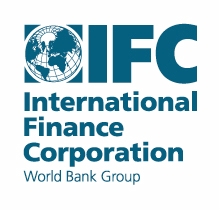 One of our experts chaired an independent panel that was appointed by the IFC to assess whether an energy utility operating coal-fired generation plans in Kazakhstan in which IFC was considering investing was compliant with the 6 criteria (for investments in coal-based generation assets) laid out in the World Bank's 2008 climate change strategy: “Development and Climate Change: A Strategic Framework for the World Bank Group” (2010).
One of our experts chaired an independent panel that was appointed by the IFC to assess whether an energy utility operating coal-fired generation plans in Kazakhstan in which IFC was considering investing was compliant with the 6 criteria (for investments in coal-based generation assets) laid out in the World Bank's 2008 climate change strategy: “Development and Climate Change: A Strategic Framework for the World Bank Group” (2010).
9- European Investment Bank (EIB)
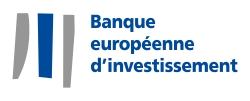 Founded in 1958, the EIB is the financing institution of the European Union (EU). Its shareholders are the twenty-seven Member States of the EU. The EIB's mission is to provide long-term financing to support viable investment projects that contribute to achieving the major objectives of the EU.
Founded in 1958, the EIB is the financing institution of the European Union (EU). Its shareholders are the twenty-seven Member States of the EU. The EIB's mission is to provide long-term financing to support viable investment projects that contribute to achieving the major objectives of the EU.
Its activities in the area of climate change are expanding rapidly. In particular, EIB is scaling up "global loans” to local banks to finance small or medium size projects energy efficiency or renewable energy projects.
In this connection, as part of a consortium led by Frankfurt School of Management and Finance, we conducted a study to assess the feasibility of combined EIB and AFD global loans to local banks in Lebanon, a country highly dependent on imported fossil fuels and where power supply is insufficient and inadequate (frequent load shedding). The global loans will support small scale investments by the private sector in the energy efficiency and renewable energy throughout Lebanon. The EIB loan (signed in December 2012) will be managed by the Lebanese Central Bank, Banque du Liban. In addition, the project is expected to benefit from a grant of up to EUR 4m for Technical Assistance for project implementation and capacity building from the Neighbourhood Investment Facility (NIF) managed by the European Commission (2011-2012).
10- Interamerican Development Bank (IDB)
![]() Founded in 1959, the IDB is the main source of development finance in Latin America and the Caribbean. It supports initiatives to reduce poverty and inequality in these countries. Its purpose is to promote sustainable development and environmentally friendly.
Founded in 1959, the IDB is the main source of development finance in Latin America and the Caribbean. It supports initiatives to reduce poverty and inequality in these countries. Its purpose is to promote sustainable development and environmentally friendly.
As part of a team led by IT Power UK, we participated in an evaluation of the portfolio of projects of the Multilateral Investment Fund (MIF) – one of IDB's instruments – in the field of climate change, in order to capture the lessons from these activities and on that basis to adapt the objectives and methods of intervention of the MIF (2011-2012).
Other Development and Multilateral Institutions
11- United Nations Economic Commission for Europe (UNECE)
 The UNECE is one of the five regional commissions of the United Nations. Its membership comprises 54 countries. We reviewed for UNECE 22 schemes established across the world for the financing of energy efficiency and renewable energy projects. This review was a contribution to the report “Financing Global Climate Change Mitigation”, part of UNECE’s “Global Energy Efficiency 21” (GEE21) initiative.
The UNECE is one of the five regional commissions of the United Nations. Its membership comprises 54 countries. We reviewed for UNECE 22 schemes established across the world for the financing of energy efficiency and renewable energy projects. This review was a contribution to the report “Financing Global Climate Change Mitigation”, part of UNECE’s “Global Energy Efficiency 21” (GEE21) initiative.
12- United Nations Environment Programme (UNEP)
 We performed for UNEP a mid-term review of the GEF-and UN Foundation-funded Seed Capital Assistance Facility (SCAF). SCAF was designed by UNEP and is co-implemented by UNEP and the Asian Development Bank, with participation of the African Development Bank and Frankfurt School of Finance and Management (http://scaf-energy.org/about/introduction.html).
We performed for UNEP a mid-term review of the GEF-and UN Foundation-funded Seed Capital Assistance Facility (SCAF). SCAF was designed by UNEP and is co-implemented by UNEP and the Asian Development Bank, with participation of the African Development Bank and Frankfurt School of Finance and Management (http://scaf-energy.org/about/introduction.html).
The facility is aimed at helping early stage clean energy enterprises and projects in Africa and Asia access start-up seed capital from commercial energy investors. It is currently implemented through six clean energy investment funds: Evolution One, DI Frontier and Lereko Metier (Africa), Aloe, Armstrong and Berkeley (Asia).
The review concluded that despite delays in operationalizing the facility (a key negative factor was the financial crisis that hit the broader investment industry starting in 2008, impacting SCAF via the difficulty for funds to raise capital as quickly and as much as expected) SCAF is now delivering results. The 6 cooperating funds are increasingly convincing their investors to back early stage investment strategies; are developing pipelines of early stage projects and providing seed financing to the best of them with a good probability that most will reach full financial close. SCAF compares well to similar public finance mechanisms in particular in avoiding the risk of donors ‘picking winners’. Sustainability remains a question mark, as these early results will need to be confirmed, and amplified. Ultimately, sustainability will derive from the emergence of a robust and financially backed renewable energy project development industry in those countries. In the meantime, SCAF usefully contributes to accelerate this process (2012).
13- United Nations Environment Programme (UNEP)
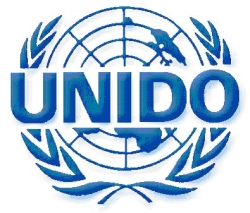 We are part of a team led by Frankurt School of Finance and Management that implements the National Climate Finance Institutions Support Programme (NCFISP) for UNEP.
We are part of a team led by Frankurt School of Finance and Management that implements the National Climate Finance Institutions Support Programme (NCFISP) for UNEP.
6
The National Climate Finance Institutions Support Programme (http://www.unep-fin.org/ncfisp/unep-ncfisp.html) is funded by the Ministry of Environment of Germany (BMU). Its aim is to provide institutional strengthening to national climate funds or institutions that aspire to become climate funds to access and best utilise climate finance, and to enable them to become "Fit for the Funds" through:
- sharing practical experience and building capacities and skills
- initiating joint research projects according to interests and needs
- preparation to effectively participate in the international climate finance architecture
We contributed to the NCFISP activities in the West African states of Benin and Ghana (2012-2013).
14- United Nations Industrial Development Organization (UNIDO)
 The United Nations Industrial Development Organization (UNIDO) is a specialized agency of the United Nations, whose mission is to promote and accelerate sustainable industrial growth of developing countries and economies in transition.
The United Nations Industrial Development Organization (UNIDO) is a specialized agency of the United Nations, whose mission is to promote and accelerate sustainable industrial growth of developing countries and economies in transition.
We advised UNIDO on the structuring of its project proposals for GEF funding (2010).
15- Organization for the Security and Cooperation in Europe (OSCE)
 The OSCE has a membership of 56 states in Europe, Central Asia and America. It provides security in a geographical area stretching from Vancouver to Vladivostok. It deals with three dimensions of security: politico-military, economic, environmental and human.
The OSCE has a membership of 56 states in Europe, Central Asia and America. It provides security in a geographical area stretching from Vancouver to Vladivostok. It deals with three dimensions of security: politico-military, economic, environmental and human.
Under the environmental heading, we wrote a report analyzing "the implementation of the commitments of OSCE member countries in the field of energy efficiency", which was presented at the 19th Economic and Environmental Forum of the organization in Prague
The report concluded that “energy efficiency is the winning strategy to simultaneously address a variety of policy objectives, including security of supply (reduced energy dependency), climate change (lower GHG emissions), competitiveness (lower operating costs), balance of payments (lower imports, higher exports), reduced investment need (in energy generation and distribution) and environmental protection (reduced local pollution, deforestation.)
Energy efficiency is the largest, cheapest (most measures have a negative cost on life-cycle basis), and not least a domestic, energy resource. Studies show that the potential for cost-effective (zero or negative on a life-cycle basis) energy savings in most OSCE participating States is vast, particularly in countries in transition, which only took interest in energy efficiency since 1989-1991.
The ‘canon’ and best practice in energy efficiency policies are well known and are widely debated in international conferences, and within international organizations’ fora and expert groups which involve experts from governments, such as the EU, the IEA, UNECE’s Committee on Sustainable Energy, and the Energy Charter Conference. Yet, despite all these benefits, that potential remains largely untapped, and implementation (e.g. of the G8/IEA 25 recommendations) is lagging in many countries or sectors (e.g. transport). There is a paradox that the most obviously beneficial policy is not implemented, or only on a scale and with a scope that fall short of needs” (2011).
Public sector
16- Fonds français pour l’environnement mondial (FFEM, or French GEF)
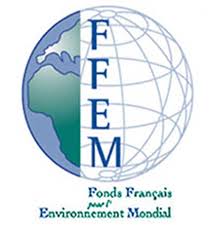 FFEM is a French government fund, managed by the AFD, which supports initiatives and international projects aimed at preserving the environment, including the fight against climate change.
FFEM is a French government fund, managed by the AFD, which supports initiatives and international projects aimed at preserving the environment, including the fight against climate change.
We acted for FFEM as evaluation and monitoring officer of a project which the FFEM is co-financing as donor: UNECE’s “Financing Energy Efficiency Investment” (FEEI) project. This project consists in developing a fund that will invest in the form of equity and/or mezzanine financing in energy efficiency or renewable energy projects in 13 countries of the former Soviet Union and central and eastern Europe (2010-2011)
17- Fonds français pour l’environnement mondial (FFEM, or French GEF)
 With Forêt Ressources Management, a consulting firm specialised in sustainable management of forests, we conducted a feasibility study for the AFD project “Bank financing of sustainable forest management in the Congo River Basin”.
With Forêt Ressources Management, a consulting firm specialised in sustainable management of forests, we conducted a feasibility study for the AFD project “Bank financing of sustainable forest management in the Congo River Basin”.
This project aims to remove the barriers to bank financing of sustainable forest management operators. It will consist of an AFD credit line to local commercial banks to support investments in sustainable forest management and a 2.7M€ FFEM-funded Technical Assistance package (2012).
18- Fonds français pour l’environnement mondial (FFEM, or French GEF)
 With FRM (see above), we conducted for FFEM a feasibility study on the Livelihoods Fund (http://www.livelihoods.eu/home.html) and its existing portfolio of projects.
With FRM (see above), we conducted for FFEM a feasibility study on the Livelihoods Fund (http://www.livelihoods.eu/home.html) and its existing portfolio of projects.
The Livelihoods Fund – established in December 2011, and successor to the ‘Fonds Danone pour la Nature’ — is a carbon fund aimed at supporting mangrove replanting, afforestation / reforestation, and domestic rural energy efficiency projects for the benefit of rural communities in developing countries (Africa, India & Latin America).
The FFEM was asked to fund a technical assistance programme to finance ‘public good’ elements supporting the fund activities. Following our study the FFEM awarded a grant of 1M€ to the Livelihoods Fund (2012).
19- Fonds français pour l’environnement mondial (FFEM, or French GEF)
 With Acclimatise and Vivid Economics of the UK, we made recommendations to FFEM to help it find a new positioning in the area of adaptation to climate change and set priorities for co-financing technical assistance projects that enhance developing countries’ resilience to climate change (2013).
With Acclimatise and Vivid Economics of the UK, we made recommendations to FFEM to help it find a new positioning in the area of adaptation to climate change and set priorities for co-financing technical assistance projects that enhance developing countries’ resilience to climate change (2013).
20 - Fonds français pour l’environnement mondial (FFEM, or French GEF)
 With Artelia (France), we designed a 3M€ Technical Assistance programme that will support an AFD credit line to local commercial banks targeting EERE projects in West Africa.
With Artelia (France), we designed a 3M€ Technical Assistance programme that will support an AFD credit line to local commercial banks targeting EERE projects in West Africa.
The substantial TA programme (€3M) will assist both project proponents (renewable energy developers and firms willing to undertake an EE programme) and beneficiary banks in developing and appraising EE and RE projects in the UEMOA (West African Franc CFA zone) region, with an initial focus on Burkina Faso, Côte d’Ivoire, Sénégal, and Togo (2013).
21- Economic Community of West African States (ECOWAS)
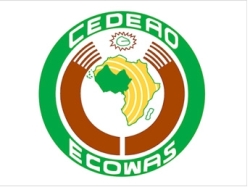 The ECOWAS is a regional group of fifteen countries in Western Africa, founded in 1975. Its mission is to promote economic integration of its 15 member states.
The ECOWAS is a regional group of fifteen countries in Western Africa, founded in 1975. Its mission is to promote economic integration of its 15 member states.
For the implementation of a regional electricity market in West Africa, ECOWAS relies on a specialized agency, the Western Africa Power Pool (WAPP). The latter has planned an interconnector linking the Ivory Coast and Guinea through Sierra Leone and Liberia.
As part of a team led by French group Artelia/ Sogreah, we developed a business plan for the special purpose company (SPC) that will build, finance and operate the interconnector. Funding agencies include the World Bank, the African Development Bank, the EIB and KfW (2011).
 The Government of Kenya is at the forefront of developing countries in the fight against climate change. It adopted a comprehensive strategy in 2010. It is currently working with the financial support of CDKN (funded by DFID and the Netherlands Ministry of Foreign Affairs), to develop an action plan to implement this strategy.
The Government of Kenya is at the forefront of developing countries in the fight against climate change. It adopted a comprehensive strategy in 2010. It is currently working with the financial support of CDKN (funded by DFID and the Netherlands Ministry of Foreign Affairs), to develop an action plan to implement this strategy.
As part of a team led Vivid Economics and Adam Smith International from the UK, we designed the financial mechanism of the action plan, which will result in the establishment of a National Climate Fund. (2011-2012)
The Kenya Climate Change Action Plan was officially launched on 27th March 2013 (http://www.kccap.info)
Carbon Finance
23- United Nations Framework Convention on Climate Change (UNFCCC) Secretariat
We assisted the UNFCCC secretariat in structuring a concessional loan scheme to finance CDM project development costs in countries with less than 10 registered CDM activities.
This scheme was endorsed by Governments at the Conference of the Parties serving as the Meeting of the Parties to the Kyoto Protocol (CMP6) in Cancùn in December 2010. The scheme is now operational, and administered by UNOPS and the UNEP Risø Centre.
Loans are offered to provide financing for project design document (PDD) development, validation and the 1st verification process. This includes: a) the preparation of the PDD, b) the validation by a ‘Designated Operational Entity’ (DOE), c) verification of the first issuance of ‘Certified Emissions Reductions’ (CERs). Seewww.cdmloanscheme.org (2010).
 CDC Climat is the dedicated climate subsidiary of France’s leading and AAA-rated financial institution Caisse des Dépôts et Consignations (CDC, established 1816) on climate issues. CDC Climat combines unique research capabilities as well as the ability and willingness to invest in carbon assets and carbon funds, with its customary long-term perspective and a keen emphasis on innovative solutions.
CDC Climat is the dedicated climate subsidiary of France’s leading and AAA-rated financial institution Caisse des Dépôts et Consignations (CDC, established 1816) on climate issues. CDC Climat combines unique research capabilities as well as the ability and willingness to invest in carbon assets and carbon funds, with its customary long-term perspective and a keen emphasis on innovative solutions.
We advised them on investment opportunities in carbon funds, notably the World Bank's Forestry Carbon Partnership Fund (http://www.forestcarbonpartnership.org/carbon-fund), whose carbon fund CDC Climat joined in 2011 (2011).